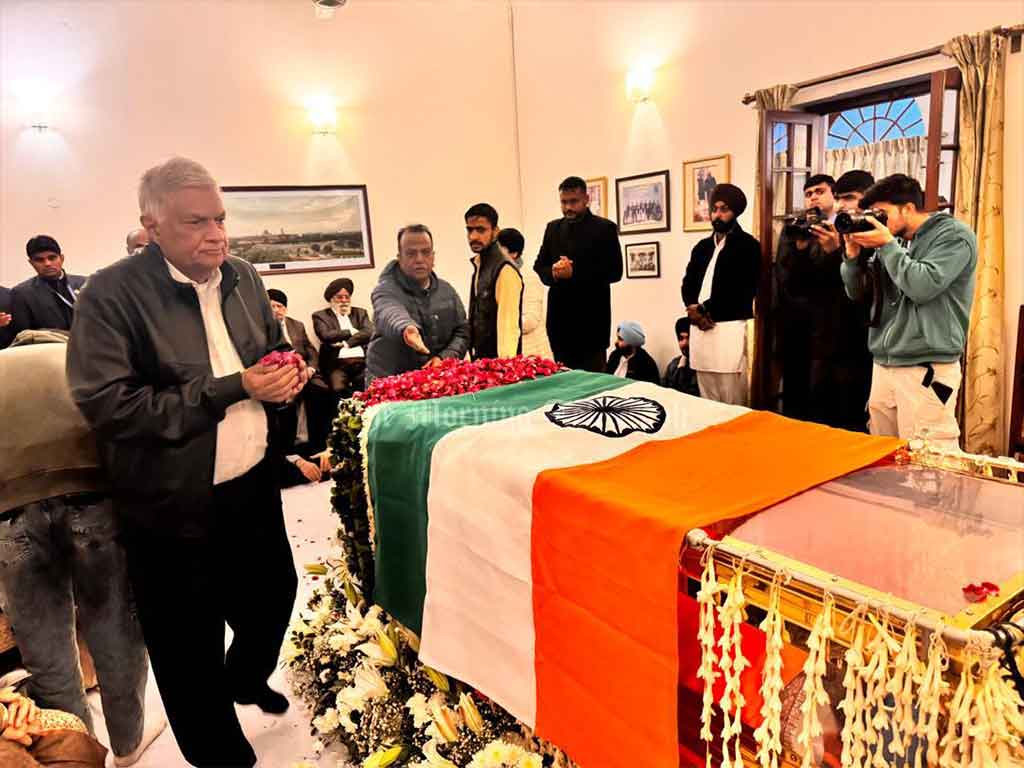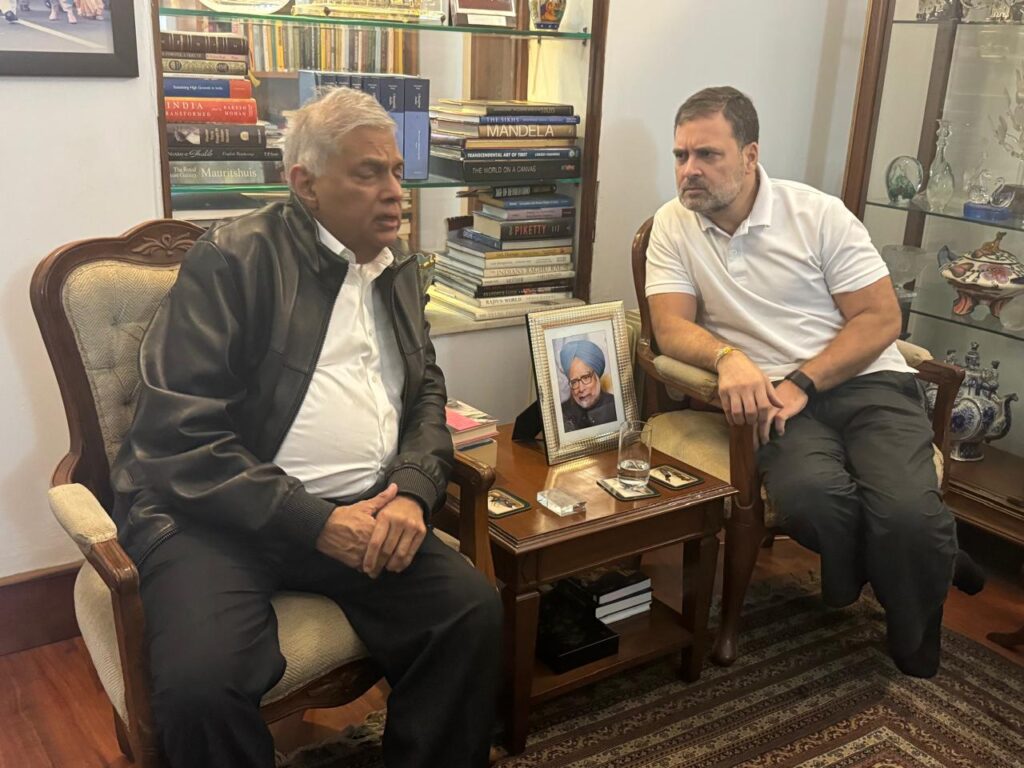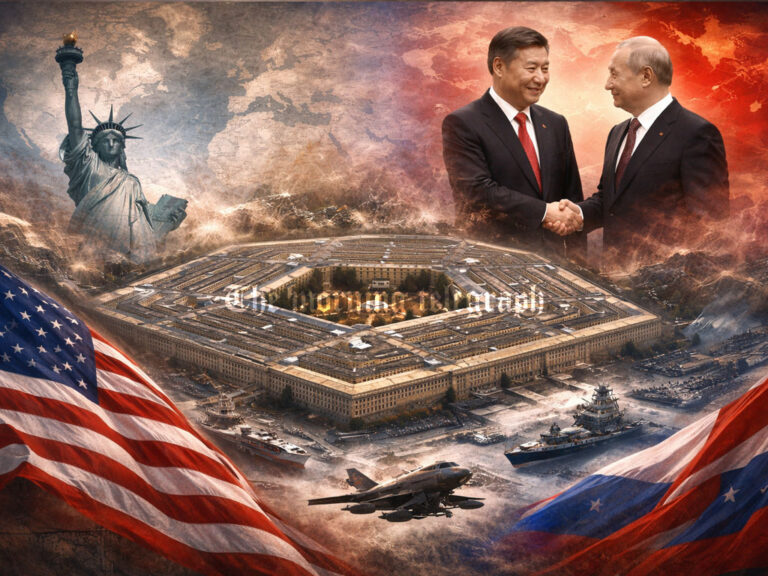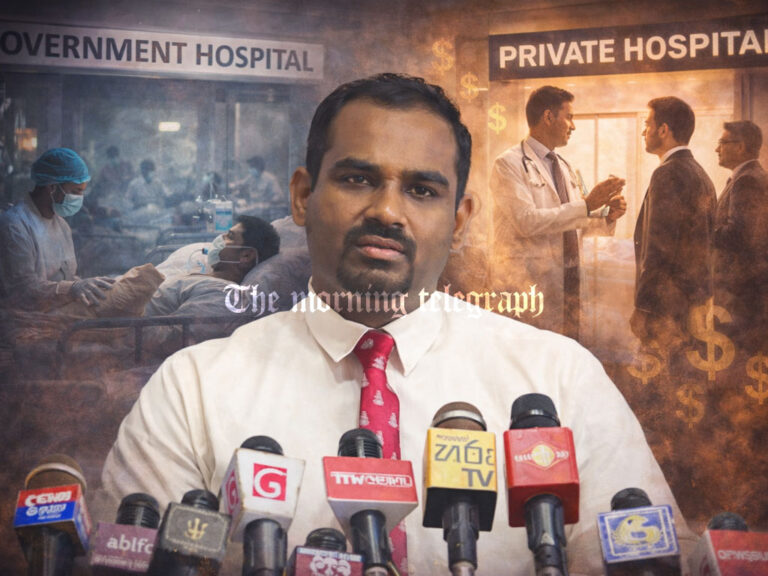
Former Sri Lankan President Ranil Wickremesinghe flew to India to pay his respect to the former Indian Prime Minister Manmohan Singh who passed away recently.
Manmohan Singh, one of India’s most influential and longest-serving prime ministers, passed away at the age of 92. Renowned as the architect of India’s liberal economic reforms, Singh served as prime minister from 2004 to 2014 and earlier as finance minister during a transformative period in the nation’s history.

Singh’s death was confirmed following his admission to a hospital in Delhi after a decline in his health. Tributes poured in from across the globe, with Indian Prime Minister Narendra Modi describing Singh as “one of India’s most distinguished leaders,” highlighting his “wisdom, humility, and extensive efforts to improve people’s lives.” Congress leaders Priyanka Gandhi and Rahul Gandhi expressed deep personal loss, with Rahul calling Singh a “mentor and guide.”
From Humble Beginnings to National Leadership
Born on September 26, 1932, in a remote village in Punjab, undivided India, Singh’s early life was marked by hardship. Despite these challenges, his academic brilliance shone through. After graduating from Panjab University, he earned advanced degrees from Cambridge and Oxford. His daughter, Daman Singh, later recounted how financial struggles during his studies shaped his frugal and disciplined nature.
Singh’s career began as an economist and civil servant before he rose to political prominence. Appointed finance minister in 1991 amidst a severe economic crisis, Singh introduced reforms that liberalized the Indian economy. His policies of cutting taxes, encouraging foreign investments, and privatizing state enterprises—ushered in a period of unprecedented economic growth, pulling India from the brink of bankruptcy.
The Prime Ministerial Years
In 2004, Singh was unexpectedly appointed prime minister after Congress president Sonia Gandhi declined the position. As India’s first Sikh prime minister, Singh was celebrated for his integrity and intellect. His first term was marked by landmark achievements, including a nuclear deal with the United States that ended India’s nuclear isolation. However, the deal also sparked political turmoil, with communist allies withdrawing support and allegations of vote-buying surfacing during critical parliamentary votes.
Singh’s second term was marred by corruption scandals involving his administration, including the infamous coal allocation and telecom spectrum cases. These controversies, coupled with economic slowdown, tarnished his government’s legacy and contributed to Congress’s crushing defeat in the 2014 general elections.
A Low-Profile Yet Influential Leader
Throughout his career, Singh maintained a reserved demeanor, earning respect for his calm and measured approach. Critics often accused him of being indecisive or overshadowed by Sonia Gandhi, but supporters lauded his ability to navigate complex coalitions and his pragmatic foreign policies. Singh fostered peace talks with Pakistan, strengthened ties with Afghanistan, and attempted to resolve India’s border dispute with China.
Despite his challenges, Singh’s contributions to India’s economic and nuclear standing remain his enduring legacy. In his later years, Singh continued to engage in public discourse, offering measured critiques of government policies and advocating for bold economic measures.
Remembering a Visionary
Manmohan Singh is survived by his wife, Gursharan Kaur, and three daughters. His passing marks the end of an era for India, leaving behind a legacy of economic transformation, quiet dignity, and steadfast service. In his own words, Singh once remarked, “I honestly believe that history will be kinder to me than the contemporary media.”
As tributes pour in, history will indeed remember Manmohan Singh as a leader who reshaped India’s economic landscape and guided it through pivotal moments on the global stage.




